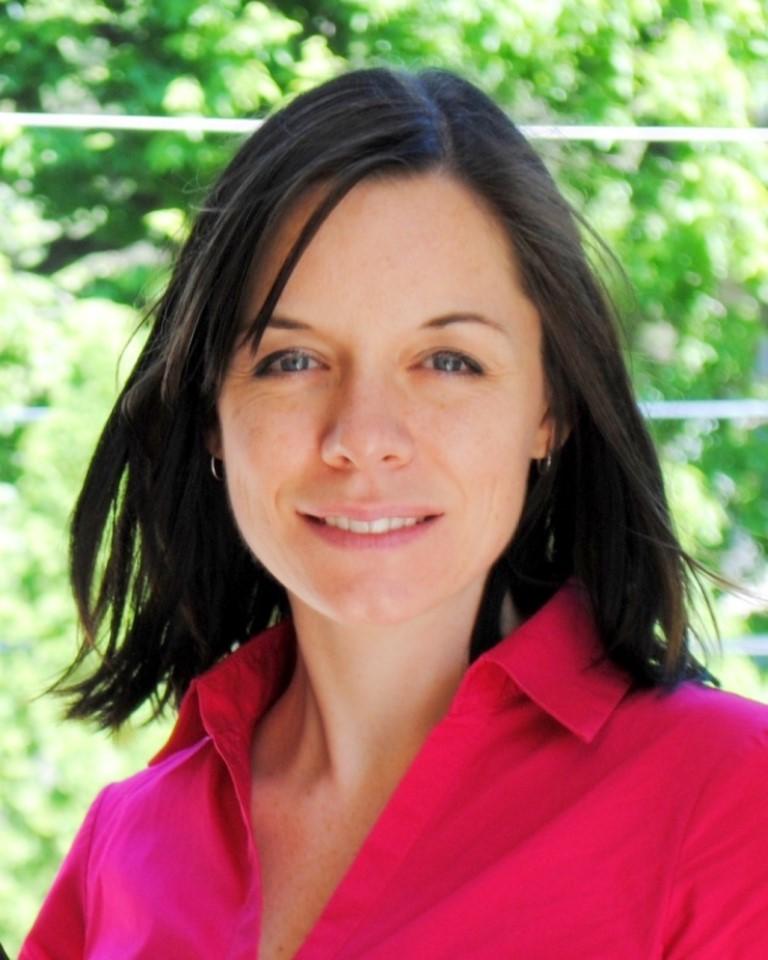Annie Tremblay

Mentor Spotlight | September 2016
Department: Linguistics
Describe your work in a few sentences that we can all understand: My research examines how a person’s native language influences the way auditory words are processed in a second language. Because the information that signals the beginning and ending of words in speech can differ from language to language, a person’s native language can lead them to pay attention to misleading information when attempting to break down a second language into individual words. My research aims to better understand how the native language influences the kinds of information that adults listen for when recognizing words in a second language. I am also interested in how adaptive adults are in learning to pay attention to different speech information in a second language.
Q: How did you first get interested in doing research?
A: As a second language learner of English, I have always tried to lose my French Canadian accent, to no avail. This curiosity about why I cannot pass for a native English speaker has led me to be interested in the ways in which a person’s native language influences his or her performance on a linguistic task in a second language, though my current research interest is in speech processing (listening) rather than speech production (speaking).
Q: What do students in your discipline learn by doing research that they wouldn’t learn by just taking classes?
A: Second language acquisition is a broad field of research that can be studied from various perspectives (e.g., linguistic, psychological, social, educational, among others). My research falls within a subfield of research called “psycholinguistics,” or the psychology of language. Most of the research conducted within that subfield is experimental: participants come to the lab and do language experiments. The research experience that students in my discipline receive includes helping with the design of language experiment, administering these experiments to research participants in the lab, and helping with the analysis of the data collected. Through this experience, students can learn how to create a good psycholinguistic experiment that controls for various extraneous factors. They also learn that research data can sometimes be difficult to interpret and that experimental data that do not turn out as expected can still reveal important findings and may require the researcher to change his or her initial hypothesis. Some of these skills can be learned by taking a research-focused class, but the student will likely learn more by doing hands-on work in the lab than by taking a class.
Q: What do you find to be the most exciting part of doing research or creative work? What makes this line of work meaningful and interesting to you?
A: Data analysis is always the most exciting part for me: What are we going to find? Will the data support our hypothesis? Or will the data refute our hypothesis? What questions will the results leave open that should be investigated in further research? With the advances of statistical modeling, data analysis has become extremely interesting too.
Q: What advice do you have for undergraduates interested in doing research in your field?
A: If you would like to get involved in research, find a faculty whose research interests coincide with yours and contact them to express your interest. If you are hoping to run an independent research project for academic purposes (e.g., senior thesis), contact the faculty as early as possible in the academic year. It takes a while to set up a research project, so the earlier you get started, the better.
Q: For many students, doing research or a larger creative project is the first time they have done work that routinely involves setbacks and the need to troubleshoot problems. Can you tell us about a time that your research didn’t go as expected? Or about any tricks or habits that you’ve developed to help you stay resilient in the face of obstacles?
A: Research data are always full of surprises. Sometimes, we do not find the effects we expected. When this happens, we can run additional experiments to see if manipulating the variables slightly differently will yield different results. Sometimes, we also find effects that we did not expect. When this happens, we can revise our initial hypothesis and run additional experiments to see if we can provide additional evidence for the new hypothesis. The key to being resilient is not letting yourself be disappointed when finding something different from what you expected. In my experience, often times, unexpected findings are the most interesting ones!
Q: How do you spend your time outside of work?
A: On Saturdays, I volunteer at Cedar Cove Feline Conservatory and Educational Center in Louisburg, KS. I help take care of wild cats (tigers, lions, leopards, lynx, bobcats, etc.) and give tours to the public.